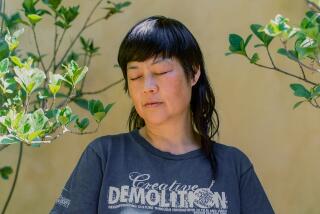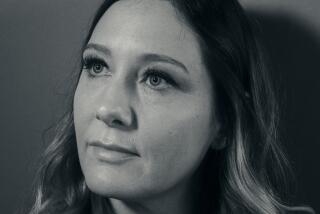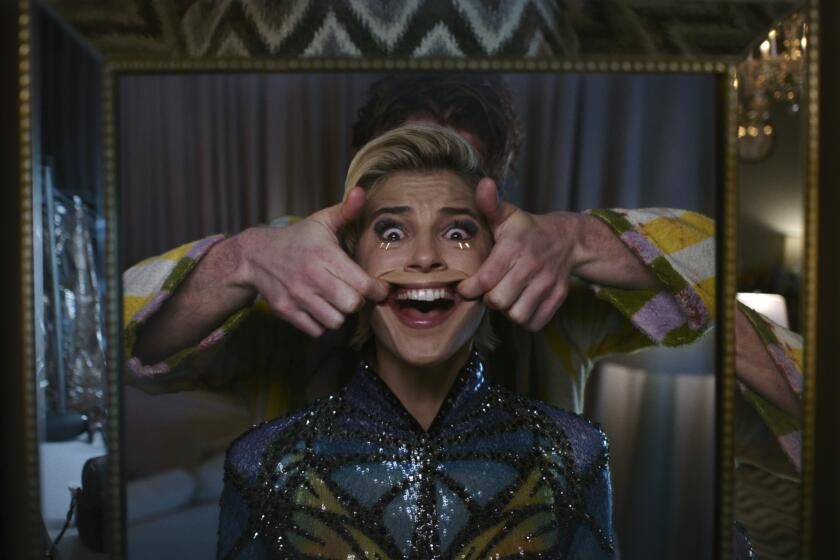Review: Jia Zhangkeâs âSwimming Out Till the Sea Turns Blueâ pays moving tribute to four Chinese writers
The Times is committed to reviewing theatrical film releases during the COVID-19 pandemic. Because moviegoing carries risks during this time, we remind readers to follow health and safety guidelines as outlined by the Centers for Disease Control and Prevention and local health officials.
The 51-year-old director Jia Zhangke is widely considered the cinemaâs most artful chronicler of a modern China in relentless, mind-boggling flux. He is less consistently recognized as one of the mediumâs great foodies, someone whose camera lingers, lovingly if unobtrusively, on images of pork being finely chopped and dumplings being folded and steamed. (His 2019 triumph, âAsh Is Purest White,â has one of the best noodle-slurping scenes since âTampopo.â) While food isnât really the point of his elegiac new documentary, âSwimming Out Till the Sea Turns Blue,â itâs not exactly not the point either. Notably, âEatingâ is the title of its tasty first chapter, kicking off a movie that, as ever with Jia, encircles a rich, varied and often painful spectrum of human experience.
There are 18 chapters, some more generically titled (âLove,â âDisease,â âJourneysâ) than others, but all of them flowing from the notion that history encompasses multitudes. That more or less sums up the theme and method of this movie, a collection of interviews that revisit a broad swath of 20th century history, stretching across the trauma and upheaval of the Mao years to the equally restless post-revolutionary decades that followed. Ostensibly a portrait of four writers whose essays, stories and novels have illuminated the impact of these events on Chinese rural life, âSwimming Out Till the Sea Turns Blueâ is also inevitably a primer on agriculture and economics, politics and revolution, romance and family. The rhythms are uneven, the patterns of meaning often elusive. But they coalesce into a moving glimpse of lives lived and artistic legacies forged in the shadow â and sometimes the harsh, glaring light â of momentous historical change.
The film was shot in conjunction with a 2019 literary festival in Shaanxi, Jiaâs home province and a setting for some of the early narrative features, including âXiao Wuâ (1997) and âPlatformâ (2000), that brought him to international prominence. But apart from a few fleeting images of attendees making their way toward the festival and a hasty montage of authorsâ speeches, the festival is just a pretext for a documentary whose true focus lies elsewhere. Working with his brilliant longtime director of photography, Yu Likwai (shooting on hyper-crisp digital), Jia brings into sharp focus the personal experiences of his four author subjects, three of whom are still living.
The one who isnât, Ma Feng, is fondly remembered here by his daughter as well as his old friends in Shaanxiâs Jia Family Village (no relation to the filmmaker), known back in 1949 as a dismal town with infertile soil, wretched poverty and an abundance of unmarryable men. As one 91-year-old resident tells it, many of these obstacles were overcome through organized labor efforts dictated by the Communist Party and spearheaded by local leaders like Ma, an educated farmer (and skilled matchmaker). But Ma is best remembered for the stories and novels he wrote in the early years of the Mao regime, full of bucolic peasant characters inspired by his fellow villagers and largely beholden to party values.
Taking a decidedly dimmer view of the situation â though heâs noticeably circumspect about some of the details â is Jia Pingwa (also no relation to the filmmaker), who was born in 1952 and whose personal and creative coming-of-age coincided with the onset of the Cultural Revolution. He speaks here with measured gravity about that terrible time, during which his father was accused of being a counterrevolutionary and sentenced to forced labor. He also speaks of the dawn of modern Chinese literature (and, not incidentally, the countryâs newfound exposure to works of Western art) in the 1980s â the decade that saw his own transformation into a renowned literary innovator, producing work that pushed formal boundaries and sometimes ran afoul of government censors.
For all their differences, Jia Pingwaâs experience echoes Maâs in one crucial respect: After spending some time away, both writers found rich creative inspiration by returning to their native Shaanxi.
The two younger writers interviewed here hail from different provinces and now live in Beijing, but they too are united by their workâs sustained focus on the ever-shifting conditions of rural life. One of them is Liang Hong, who speaks of a â70s childhood in Henan province marked by poverty and pain, dwelling with especially poignant emphasis on her motherâs death and her fatherâs struggle to raise her and her siblings. But these struggles have also been offset by moments of creative fulfillment and personal joy, as we see when Jia turns the camera on Liangâs own teenage son.
Perhaps the most captivating of the movieâs main subjects is Yu Hua, who began writing in the â80s after working as a dentist and whose easy grin and irascible wit give this generally sedate work a jolt of life. The author of several novels â including the much-acclaimed, much-adapted âTo Liveâ â Yu steers us through a personal history to which more than a few writers will relate: the initial rejections, the publication of his first short stories (provided he satisfy his editorâs demand for a happy ending) and the initial strange, disorienting trappings of fame. All three of the writers interviewed here are, unsurprisingly, gifted storytellers, adept at unfurling their own personal narratives in engrossing fashion.
Thatâs particularly helpful for viewers who come to this movie, as I did, with little firsthand knowledge of their written work and who will find little enlightenment, at least on that particular score, from Jiaâs unsurprisingly oblique approach to portraiture. Like so much of this directorâs work â including his earlier films âDongâ (2006) and âUselessâ (2007), with which it forms a loose trilogy of documentaries about artists â âSwimming Out Till the Sea Turns Blueâ resists the obvious, even when it finally reveals the meaning behind its poetic title. Itâs a brief, bittersweet jolt of an anecdote, and it reminds us of the stories weâre so often told in life â sometimes true, sometimes not â and also of the wisdom and firsthand experience that can help us tell the difference.
âSwimming Out Till the Sea Turns Blueâ
Not rated
In Mandarin with English dialogue
Running time: 1 hour, 52 minutes
Playing: Starts May 28, Laemmle Royal, West Los Angeles
More to Read
Only good movies
Get the Indie Focus newsletter, Mark Olsen's weekly guide to the world of cinema.
You may occasionally receive promotional content from the Los Angeles Times.











